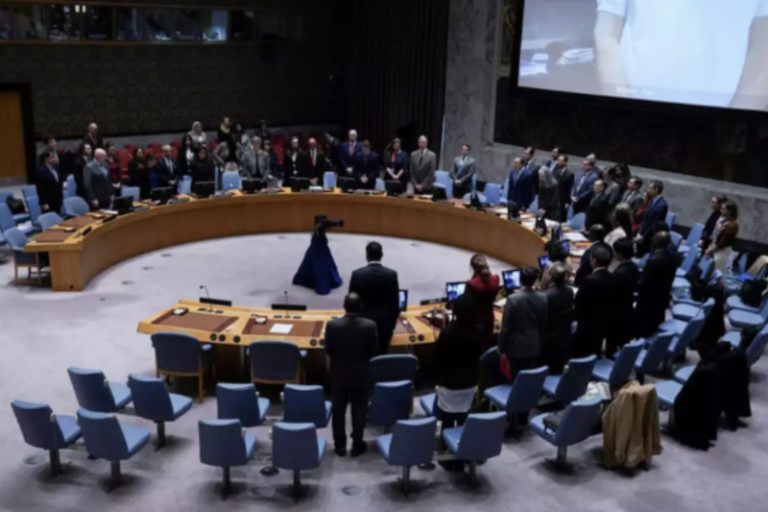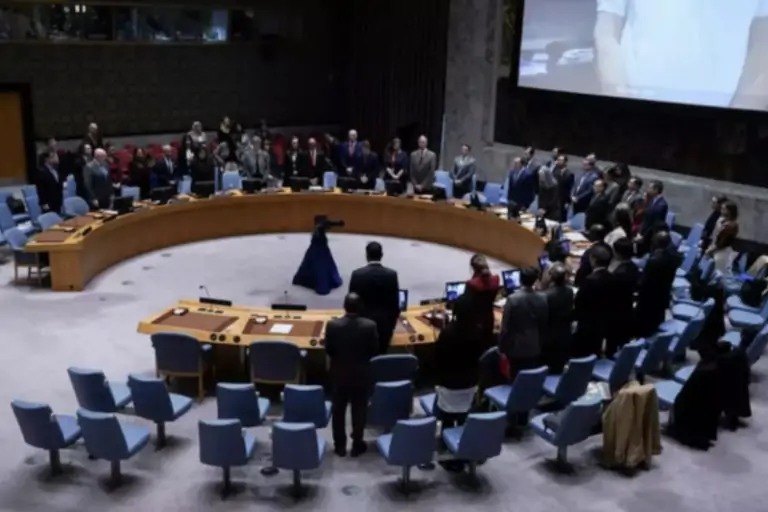

un security council discusses increase in violence and violations in sudan considers sanctions
The UN Security Council convened to address the escalating violence and violations in Sudan, particularly in the west Darfur region. South Korean ambassador Joonkook Hwang, chairing the Security Council Committee established pursuant to Resolution 1591, briefed the council on recent developments, highlighting concerns over violations of the arms embargo and humanitarian and human rights laws.
The chair of the council’s Committee Pursuant to a 2005 Resolution on Sudan reported a surge in violence against civilians, especially in west Darfur, along with violations of the arms embargo. The Sudan Panel’s reports revealed ethnically-based recruitment by warring parties and complex financing schemes by armed groups active in Darfur. Hwang reiterated the possibility of targeted sanctions against perpetrators of violations and those facilitating arms transfers to Darfur.
Sudan’s envoy to the UN Security Council appealed for an end to sanctions, arguing that it would enable the Sudanese government to better protect civilians in the conflict against the Rapid Support Forces (RSF). The envoy urged member states to name individuals responsible for arming militias and pledged Sudan’s cooperation in identifying foreign actors involved in arms provision. However, the representative of Algeria emphasised the importance of enforcing the arms embargo and advocated for sanctioning perpetrators of arms trafficking in Darfur.
Amidst the conflict, Edem Wosornu, the UN director of humanitarian operations, warned that Sudan is facing the world’s worst hunger crisis, with 18 million people already experiencing acute food insecurity. Wosornu emphasised the pressing need for humanitarian aid, underscoring the insufficiency of funding, as the UN’s request for $2.7 billion for Sudan has received less than 5% of its total funding, amounting to only $131 million.
The Security Council’s discussions underscore the critical need for immediate action to address the escalating humanitarian crisis in Sudan. With millions facing acute food insecurity and ongoing violence exacerbating the situation, timely and robust humanitarian assistance is paramount. We urge member states to intensify their support, ensuring that humanitarian aid reaches the most vulnerable and alleviates the suffering of the Sudanese people.
While addressing the immediate humanitarian needs is essential, the Security Council must also work towards long-term solutions to promote peace, stability, and development in Sudan. This includes efforts to resolve the underlying conflicts driving violence in Darfur and other regions, as well as supporting initiatives for political dialogue and reconciliation. Sustainable peace and security in Sudan require comprehensive approaches that address root causes and promote inclusive governance and economic development.
Effective international cooperation is key to addressing the crisis in Sudan comprehensively. The Security Council, regional organisations, and the international community must work together to support Sudanese efforts to restore peace, protect civilians, and promote sustainable development. This includes coordinating efforts to enforce arms embargoes, holding perpetrators of violations accountable, and providing meaningful support for humanitarian assistance and development initiatives.
As violence and violations escalate in Sudan, particularly in Darfur, the UN Security Council deliberates on measures to address the crisis. While discussions revolve around possible sanctions and calls for humanitarian aid, the situation on the ground remains dire, with millions of Sudanese facing food insecurity and heightened risks to civilian lives.
As the Security Council deliberates on the situation in Sudan, the urgency of addressing the escalating violence and humanitarian crisis cannot be overstated. In addition to taking decisive action to address the causes of violence and advance long-lasting peace, immediate action is required to save the lives of those who are suffering from the conflict. In the face of daunting challenges, concerted international efforts offer hope for a better future for the people of Sudan.
The U.S.-based driver training company Zutobi analyzed road safety worldwide and found South Africa stays last in driving danger since…
The Basketball Africa League (BAL) returns for its 2025 season with exciting changes and developments. Since 2019 the NBA-linked basketball…
The Somali president supports their military forces to eliminate the threats from Al-Shabaab, ISIS, and Al-Qaeda. The Somali National Army…
UAE President Sheikh Mohamed bin Zayed Al Nahyan held talks with President Faustin Archange Touadéra of the Central African Republic…
African football teams struggle intensely in the World Cup Qualification rounds to earn their place on the international football stage.…
The journey toward the 2026 FIFA World Cup is rapidly intensifying for all African teams, who now hold a historical…
This website uses cookies.